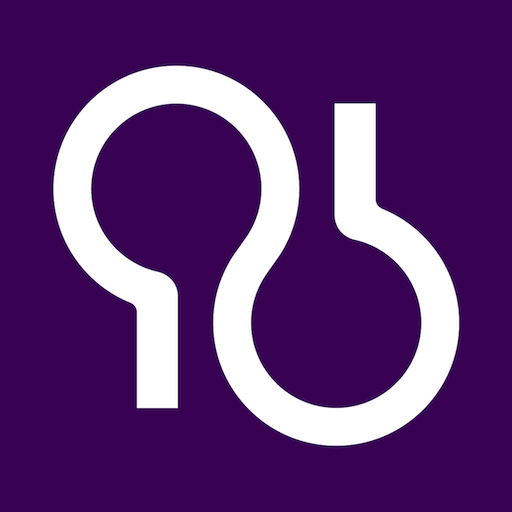
Mild Cognitive Impairment
Symptoms:
- Difficulty coming up with words or following a conversation
- Missing appointments or social events
- Trouble finding their way around places they know well.
- Finding it hard to make decisions, finish a task or follow instructions
Mild cognitive impairment (MCI) increases the risk of developing dementia, but it doesn’t mean a person will definitely get dementia. Some people stay the same or even improve over time.
Resources & Recommendations:
-
Talk to a health care provider
If you or a loved one are noticing signs of memory loss or cognitive changes, it is important to speak with your healthcare provider. There could be many causes for Mild Cognitive Impairment symptoms and some may be treatable. Finding out early and getting the right diagnosis gives you more treatment options, opportunity to slow progression and manage symptoms. It’s important to incorporate lifestyle interventions and brain healthy habits. Taking care of your body helps your brain work its best and lowers the risk of dementia.
- Get regular medical care
- Make regular appointments with your primary care provider and/or specialists (e.g. neurologist, geriatrician, psychiatrist).
- If you need help finding a provider, click here.
- Your health care provider can track any changes in memory and thinking. They can also address potentially treatable causes for the MCI.
- Get regular medical care
-
Consider treatment options
Although there is currently no cure for MCI, there are disease-modifying treatments in clinical trials that may help slow its progression. Talk to your healthcare provider to learn more.
- There are disease-modifying treatments (DMT) for early stage Alzheimer’s disease and mild cognitive impairment (MCI). These medicines don’t just help with symptoms—they try to slow down the disease itself. Right now, the most well-known DMTs are special medicines called monoclonal antibodies. They work by finding and clearing away amyloid-beta plaques, which are a hallmark of Alzheimer’s. Some examples of these medicines are Lecanemab and Donanemab. These medicines are currently delivered intravenously or through an IV at outpatient infusion centers at regular intervals (e.g. every 2 to 4 weeks). Some side effects may include amyloid-related imaging abnormalities (ARIA), infusion-related reactions, headaches and falls. Medicare can help to cover these treatments if the health care provider participates in a data registry.
- Here are a few clinics in Hawai‘i that offer these treatments:
- The Queen’s Medical Center Brain and Memory Center
- Queen’s Neuroscience Institute
- Neurology Clinic – Punchbowl: 808-691-8866
- Neurology Clinic – West O‘ahu: 808-691-3135
- Queen’s Geriatric Services
- Geriatric Clinic – Punchbowl: 808-691-8877
- Molokai General Hospital: 808-553-3121
- Queen’s Neuroscience Institute
- Hawaii Pacific Neuroscience, Memory Disorders Center – (808) 261-4476
- Hawaii Pacific Neuroscience can offer free blood biomarkers screening for Alzheimer’s disease for people age 50-90 years old with memory loss concerns. They can also offer free travel assistance for patients from the neighbor islands participating in clinical trials for various treatments
- Hawai‘i Pacific Health, Pali Momi’s Neurology Clinic – Phone: (808) 485-4250
- The Queen’s Medical Center Brain and Memory Center
-
Start the Conversation & Plan Ahead
Planning ahead when living with mild cognitive impairment is about empowering your choice and making decisions about your life in advance. This helps make things clear for those supporting you in your journey. It can be difficult, but it is good to plan ahead if you are able, as soon as you can. After you’ve had time to adjust to your diagnosis, here’s some next steps to take:
- Talk story with people who you trust and who support you. They may be your ‘ohana, your family members, your chosen family, close friends, and care team. Talk with them about what is most important to you and how you want to live. As an ‘ohana, talk about mild cognitive impairment and work together to plan for the future to ensure that you can continue to live well with mild cognitive impairment. It may take time for family and friends to accept and understand, but it’s important to not go through this alone. If you’re the caregiver, bringing together the ‘ohana may help them know how to support you too, so that you don’t have to carry all the care responsibilities on your own. Every family is different.
- An important first step is completing an Advance Healthcare Directive, which identifies who you trust to help with your health care decisions and what kind of care you would want. This can only be done while you have the capacity to do so. You may also consider completing a legal financial power of attorney document and a Providers Orders for Life Sustaining Treatment form. Click here visit Kokua Mau’s website to learn more.
- It takes a village.
- When you talk story with your ‘ohana about your diagnosis, it can be helpful to talk through different roles. Everyone will have different understandings of mild cognitive impairment and different capacities to help. This will often change throughout the journey. Perhaps one family member or friend can assist with the day to day tasks, while another family member helps to manage the finances. Talking about it can help everyone to feel better and have clearer expectations. If you’re living alone, perhaps a trusted neighbor can check in on you often to see that you’re safe. Local social service organizations have programs that can provide support, case management, and guidance.
- Consider the different care options and resources in the community.
- There’s care at home, care at a center during the day time, 24/7 care at residential care homes or foster homes and 24/7 care at nursing facilities. Everyone is different and everyone’s experience living with mild cognitive impairment is different. However, it can be helpful to consider the types of care you would be open to receiving if it could benefit your safety and quality of life. It’s also helpful to think about the types of care that your finances can afford and whether to prepare to apply for government assistance in the future. If you’re able, it’s helpful to talk with your ‘ohana about this in advance so that they know how to support you and honor your wishes.
-
Advance Care Planning
The Advance Health Care Directive is an important advance care planning document. This is a written statement about the type of care you want and the people you trust to help you with health care decisions, if you can no longer speak for yourself. It is a gift to family and friends so that they won’t have to guess what your wishes are. It empowers your choice.
Everyone age 18 years or older should have an Advance Health Care Directive. It is especially important for people with Mild Cognitive Impairment, early-stage dementia, or any illness to complete an Advance Health Care Directive as soon as possible. An Advance Health Care Directive can only be completed while the person has capacity to make decisions about their care. The Advance Health Care Directive can be made official by having a notary or two witnesses sign with you. Visit Kokua Mau – Advance Directives to download an Advance Directive with instructions and view frequently asked questions.
Here’s a couple of resources to learn more:
- Hawaii News Now Video: Advance care planning with Kristin Lambert Bryant, Attorney at Law
- The Essential Elder Law Hawaiʻi Handbook
It is also important to consider working with professionals to complete a Providers Orders for Life Sustaining Treatment (POLST) form and a durable Power of Attorney.
A POLST form can be completed with a health care professional. “POLST is a form that contains medical orders that specify the type of care you would like in the event of a medical emergency. This form can be quickly understood by all healthcare professionals, including first responders and ambulance personnel,” (Kokua Mau). Click here to learn more.
One should seek competent legal advice to draft a Power of Attorney for financial decisions. This is a legal document that designates an agent, usually a trusted family member or friend, to assist you with managing property or business affairs if one day you do not have the capacity to do so. A caregiver will need this Power of Attorney in order to assist with paying bills and managing the funds.
Learn more:
- Legal Aid Society of Hawaiʻi
- Call: 808-536-4302 (OʻAHU) or 1-800-499-4302 (NEIGHBOR ISLANDS)
- Main website: https://www.legalaidhawaii.org/
- Hawai‘i State Bar Association
- For attorney referrals and more information, contact the Lawyer Referral & Information Service office at (808) 537-9140 or by email at LRIS@hsba.org.
- Website: https://hsba.org/
Free Legal line: Volunteer attorneys host a telephone hotline every Wednesday evening from the hours of 6:00 p.m. – 7:00 p.m. only to provide free legal information to the public. Call (808) 537-1868. This one-hour weekly program assists members of the public who may not have access to an attorney and need general advice or who just want to be pointed in the right direction to get information.
-
Financial safety tips
- Consider ways to make it easier to manage your money and invite a trusted person to be your back-up.
- Gather your important documents, whether hard copies or electronically, in a safe place known only to trusted persons close to you. These are things like info on your bank accounts, insurance, taxes, etc.
- Remembering a PIN number may become difficult, and so using contactless credit cards for tap-to-pay can be helpful.
- It might be helpful to set up limits on debit or credit cards. This can help to protect your funds, especially if you tend to misplace things often.
- If you have someone close to you who you can trust to help manage your finances, it can be helpful to add them as an Authorized User to your accounts. This may also allow them to help make payments for you, without transferring financial responsibility or opening a joint bank account.
- If you can, designate a financial power of attorney so that someone you trust can help manage your finances. Some may choose to do a Durable Power of Attorney and include both health care and financial power of attorney information. When living with Mild Cognitive Impairment, forgetfulness may make it difficult to keep track of monthly bills and manage expenses. Click here for a sample and talk with an attorney on next steps.
- Consider financial planning and looking at your savings, investments, retirement plan, and long-term care insurance. These will be important financial resources to pay for care in the future.
- Learn more: https://www.alzheimers.gov/life-with-dementia/planning-after-diagnosis
-
Home safety tips
- Click here for a Home Safety Checklist PDF from the Alzheimer’s Association.
- Consider wearing a medical ID bracelet or necklace in case you get lost or need help, or joining the MedicAlert. Some families may also place identification and contact information in a wallet or sewn onto clothes.
- Keep a current photo and description with family or friends so that they have it ready in case you get lost and they can file a missing person report. Here’s an AARP article with tips.
- The State of Hawaiʻi Department of Law Enforcement is developing a Silver Alert program that will help save lives by alerting the community and helping to locate people who may wander off and go missing due to cognitive decline like dementia. More updates are coming soon.
-
Gather your support team
- It can be helpful to have support around you. They may be your ‘ohana, your family members, your chosen family, close friends, and care team. Talk with them about what is most important to you and how you want to live. This support team could also include professionals like your primary care provider, specialist doctor, case manager, social worker, and Health Coordinator or Services Coordinator.
- Share your experience with your support team. It can be helpful to let them know about your diagnosis so that they know what to expect and how to support you. It can be difficult to share, but having support around you can make the biggest difference.
Resource Library
Kula No Na Poʻe Hawaiʻi
Kula no nā Poʻe Hawaiʻi is a Native Hawaiian beneficiary serving organization that exists to promote cultural, educational, environmental, and health equity for all. KULA provides the Papakolea Hawaiian Homestead Region a multitude of programs and activities from the Papakolea Community Center. KULA leads several community based research projects and the implementation of the Native Hawaiian Road Map: Navigating the Impacts of Nā Ma’i Poina – Alzheimer’s Disease and Related Dementias.
- Types: Education & Training
- Stages: Before, Early, Middle, Late
- Areas: Oahu
- Contact:
State Kupuna Care Program
The State Kupuna Care Program provides community-based services to older adults so that they can remain at home for as long as possible. These services also support working caregivers to continue their employment, by providing support for their care recipient. Services may include attendant care, home maker, transportation, case management, home delivered meals, chore services, adult day care, respite care, personal care services, and participant-directed care option. The Aging and Disability Resource Centers (ADRC) provide options counseling and can do the assessments to see if a older adult qualifies for the State Kupuna Care Program. If they qualify, the ADRC will make a referral to a provider organization for the services.
- Types: Education & Training, Guidance & Counseling, Info & Resources, Respite, Support Groups & Community
- Stages: Before, Early, Middle
- Areas: Statewide, Hawai'i Island, Kaua'i County, Maui County, Oahu
-
Contact:
Aging & Disability Resource Center
Phone: (808) 643-ADRC (808-643-2372)
TTY (808) 643-0889
Tech Savvy Teens
Tech Savvy Teens, Hawaii’s leading initiative focused on equipping middle and high school students with essential technology skills while providing crucial support to our kūpuna (seniors). Older adults can book a session for Technology Tutoring and Coaching.
- Types: Technology Support
- Stages: Before, Early
- Areas: Oahu
-
Contact:
Tech Savvy Teens
1110 University Avenue, Honolulu, Hawaii 96826, United States
Email: admin@hookama.org
Tutus House
Tutu’s House is best known for their welcoming, non-judgmental atmosphere—a safe place to experience and explore a variety of approaches to health and wellness. They have a wide range of classes and activities to join. Visit their website to view their calendar and learn more.
- Types: Education & Training, Support Groups & Community
- Stages: Before, Early
- Areas: Hawai'i Island
-
Contact:
info@tutushouse.org
808-885-6777
View More Resources
Select the stage of dementia your person is in. This will take you to resources curated for caregiving in that stage.
Early Stage Dementia
Early stage dementia is characterized by difficulties with executive cognitive functions like planning and judgment, problem-solving, abstract thought, grasping the “big picture,” and performing complex tasks that were previously manageable.
Mid Stage Dementia
Mid-stage dementia involves increased memory loss for personal history and recent events, confusion about time and location, a tendency to wander, and the emergence of personality and behavioral changes such as suspiciousness, delusions, or repetitive behaviors.
Late Stage Dementia
In late-stage dementia, individuals require constant care for daily activities, lose awareness of their surroundings and recent events, experience physical decline affecting mobility and swallowing, and become more susceptible to infections like pneumonia.
Support Groups & Upcoming Events
Project Dana’s Caring for the Caregiver (C4C) program offers services to family caregivers and soon to be caregivers. The goal of the program is to help alleviate the stress that […]
September 15th from 6:30 pm - 8:00 pm
Alzheimer's Association Hawaiʻi Chapter (Oʻahu) Caregiver Support Group
We offer support groups for caregivers and individuals living with Alzheimer’s or other dementia. All support groups are facilitated by trained individuals. Support groups create a safe, confidential, supportive environment […]
The Caregiver Foundation hosts a monthly virtual support group for Caregivers. These groups provide a space for Caregivers to come together, share experiences, and build community. We also feature guest […]
Sign Up for Our Email Newsletter
Receive News, Alerts & Updates via Email



Follow Us on Social Media